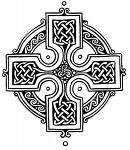Tuesday, April 13, 2010
The Cross of Life
For a couple of years my wife and I have attended Good Friday services at St. John the Evangelist Monastery (an Episcopal Church monastery located in Cambridge Massachusetts). The quiet contemplative service centers on an adoration of the cross. At the appropriate time, following the monks lead, participants are invited to approach the cross solemnly kneeling and bowing to the ground three times as they move closer to the cross. The third station of adoration is at the very foot of the cross where participants either kiss or touch the cross in some manner.
There is something deeply moving about this strange and ancient service. Good Friday invites us to come to the cross. It beckons us to stand or kneel in awe before the reality of this night. The words of John Bowring’s great hymn portray the essence: “In the cross of Christ I glory, towering o’er the wrecks of time” (The United Methodist Hymnal, No. 295, verse 1.
I must confess that often, too often, I have attempted to sanitize the cross. In doing so I have diminished its power in my life and the life of my congregations. A common lectionary text for Good Friday comes from Hebrews 10:16-25. A fair reading of the text prohibits any "cleaning up" of the crucifixion. Incontestably the employment of the Old Testament image of Jesus as a “blood sacrifice” (verse 19) is anchored in the cross. In a world that knows bombs and IEDs, violence and heartache, a sanitized Jesus will not do. “By the new and living way that he opened for us through the curtain (that is, through his flesh),” (Hebrews 10:20) we come to a cross of life. Jesus’ physical death on the cross is a metaphorical tearing of the temple curtain in two. (See Matthew 27:51) Previously the curtain kept the common believer separated from God. Now, on this day we dare to call good, because of our great priest Jesus, the sacrifice has been made that opens our way to God. We are reconciled to God through the cross of life. Eugene Peterson’s paraphrase translation catches the essence: “So, friend, we can now – without hesitation – walk right up to God, into ‘the Holy Place.’ Jesus has cleared the way by the blood of his sacrifice, acting as our priest before God.” (The Message, Eugene Peterson, Hebrews 10: 19-20, p. 2193) From this towering conviction we claim a cross of life amidst death’s rubble.
I like that phrasing "without hesitation -- walk right up to God." As I knelt on the marble floor in the Chapel of St. John the Evangelist, I was forcibly struck again by my need to cling to the cross of Christ. Embracing Christ on the cross I find I am connected to the cross of life.
Subscribe to:
Post Comments (Atom)

Just a question if you have time, I know you are busy, but you write "Now, on this day we dare to call good, because of our great priest Jesus, the sacrifice has been made that opens our way to God."
ReplyDeleteDo you affirm that God mandated Jesus as sacrifice?
Without quibbling about words, "mandated" is not the word I would employ. God's atonement comes through the sacrifical offering of Christ on our behalf. Could God have chosen another way? God is God so I presume the answer is yes. Did God choose this way? Again the answer is yes. Was it mandated? Depends on what you mean by mandated.
ReplyDeleteThank you for your response. I know you are busy and may never respond so thank you for taking the time to clarify.
ReplyDeleteI will need to ponder a bit on my choice of words. Perhaps the heart of my question is rooted in my experience with others who say things like, "how could God mandate/force Jesus to die? Could not God reconcile the world to Godself without a blood sacrifice?"
It really gets to the "is Jesus the only way" arguments, for which you were not directly writing about. Thank you for your time.